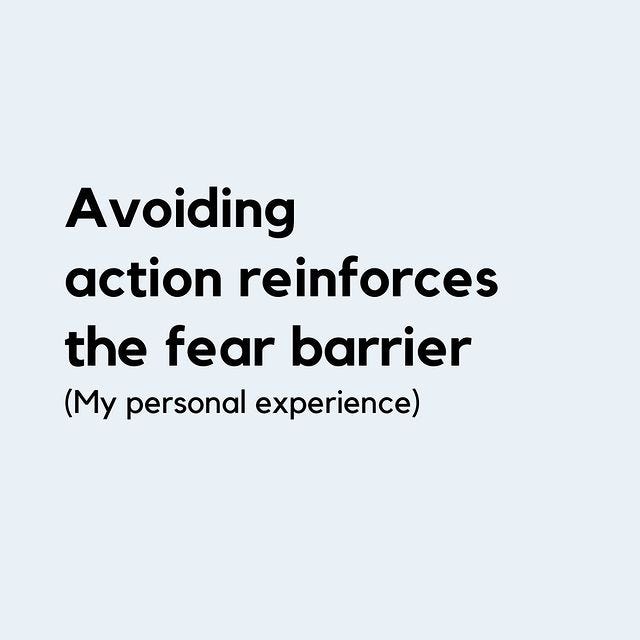Approaching insomnia on vacation
How are you doing, friend?
It's summertime, and a common question that comes up during this season is how to approach going on trips while navigating insomnia recovery.
Just today, I was recording a video for The Sleep Coach School YouTube channel on this topic. Before it gets released, here’s an “exclusive early access” to my thoughts (one of the benefits of being on my mailing list 🙂).
First of all, if you’re planning a trip or already going on one – big kudos to you! I know this isn’t an easy decision for someone recovering from insomnia. It might sound strange, but going on vacation, making plans, and living our lives without waiting for insomnia to vanish first is the most helpful thing we can do for ourselves.
Fear will nudge us to cancel plans and stay home, and while doing so might alleviate the pressure and fear in the short term, it keeps the fear intact in the long run. Avoiding plans builds a bigger fear barrier for the future – this is something I’ve observed on my own journey.
Before I share my thoughts, I want to say there’s absolutely no judgment if, for some reason, it feels like it’s not the right time for trips. I truly get that. In my early days of struggling with insomnia, I didn’t have it in me to push the boundaries. If postponing trips comes from a place of self-care and kindness, I see no problem with that.
However, it’s good to be mindful of systematic avoidance. We usually sense when we’re avoiding something on a regular basis and the decision comes from the place of fear, rather than self-care.
With that said, let’s dive into my four insights about working with the fear of sleeplessness during trips:
Insight 1: anxiety before a trip is normal
The first step is understanding that it’s normal to feel anxious before a trip. Fighting anxiety itself won’t help us. Our brain dislikes uncertainty, especially during recovery. Any new environment can trigger a reaction – from mild curiosity (“I wonder what my sleep will be like there?”) to nagging anxiety and even panic.
The presence of this reaction isn’t the problem. The struggle comes from how we think about this feeling. Having worry before a trip is expected – it’s our brain’s natural response to uncertainty. You’ve been teaching your brain to feel safe at home, so the idea of sleeping elsewhere will make it alert for a while.
Instead of trying to “stay calm,” we can acknowledge and validate the feeling, allowing the automatic reaction to happen – just like we allow ourselves to have hiccups from time to time. It’s not pleasant, but it’s not inherently bad.
Next time fear ramps up about an upcoming trip, we can remind ourselves: “Of course, it’s normal for me to feel anxious right now. My brain is simply trying to look out for me. Thank you, brain, for doing your job!”
Insight 2: ask yourself: what am I really afraid of?
With acknowledgment and acceptance of our normal emotions, we can look into the fear itself and see if what the brain fears is really that bad.
Maybe we feel it’s unacceptable to sleep poorly on a trip because we believe “normal people sleep well everywhere,” but that belief can be disputed. Even “good” sleepers can have trouble sleeping in a different environment – noisy room, uncomfortable mattress, indigestion, etc. Normalizing sleep disruption on a trip reduces pressure to sleep.
Or we might fear that poor nights will ruin our vacation. But a wakeful night doesn’t automatically mean a bad day. We can question this assumption. Is it possible for a good day to follow a not-so-perfect night? Absolutely! And the reverse is true too – a perfect sleep might be followed by a rubbish day.
Breaking down our fears like this reduces pressure to sleep, allowing the nights to go smoother.
Insight 3: ask yourself the right questions
It’s natural to want to protect ourselves from wakefulness on a trip, and we might ask, “How can I prevent sleeplessness or anxiety from happening on the trip?” But this line of thinking puts us in a defensive state.
Instead, we can ask, “How can I make it comfortable for myself to experience wakefulness IF it happens?” This puts us in a more accepting state – which can be quite empowering! My go-to answer was to take headphones with me in case I wanted to do something on my phone or a laptop if I couldn’t sleep. Note how the “solution“ wasn’t about avoiding a certain scenario but embracing it proactively.
Insight 4: embrace all possibilities on the trip (including the nice ones!)
When we think of acceptance, we often imagine the worst-case scenarios. But for all we know, you might have better nights than expected! Anything is possible, including a nice outcome 🙂
Many people have messaged me after their vacations, saying how great it went and that they don’t regret going despite the fear. We might not know how we’ll sleep in a different place, but even “good” sleepers don’t know that either.
I truly hope this letter brings you comfort and clarity. 🙏 Let me know if you found it helpful in the comments!
On a side note, I’ve been pretty active on Instagram and a bit on YouTube lately (it’s my recent self-made challenge), so here are some new posts you might have missed:
See you next time!
Ali






